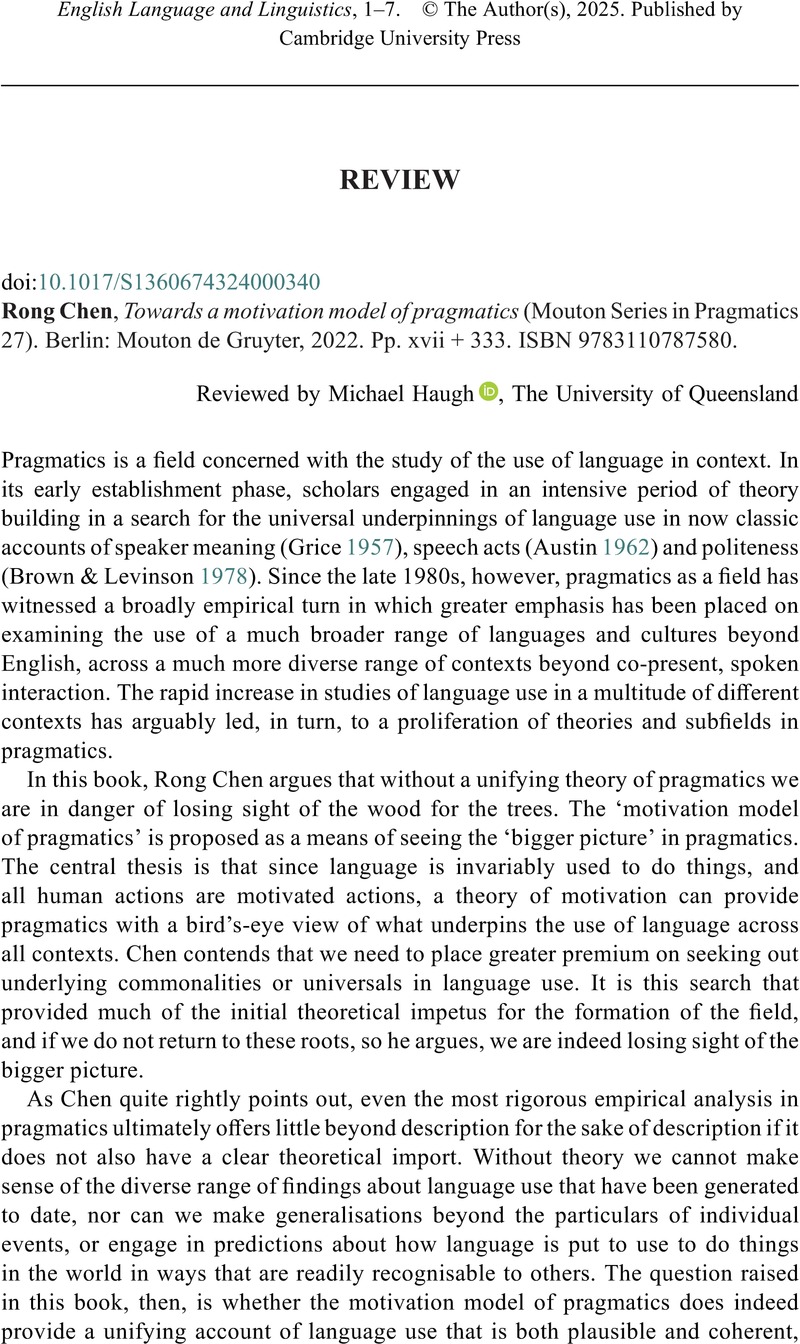No CrossRef data available.
Article contents
Rong Chen, Towards a motivation model of pragmatics (Mouton Series in Pragmatics 27). Berlin: Mouton de Gruyter, 2022. Pp. xvii + 333. ISBN 9783110787580.
Review products
Rong Chen, Towards a motivation model of pragmatics (Mouton Series in Pragmatics 27). Berlin: Mouton de Gruyter, 2022. Pp. xvii + 333. ISBN 9783110787580.
Published online by Cambridge University Press: 27 January 2025
Abstract
An abstract is not available for this content so a preview has been provided. Please use the Get access link above for information on how to access this content.

- Type
- Book Review
- Information
- Copyright
- © The Author(s), 2025. Published by Cambridge University Press
References
Austin, John L. 1962. How to do things with words. Cambridge: Cambridge University Press.Google Scholar
Brown, Penelope & Levinson, Stephen C.. 1978. Politeness: Politeness phenomena. In Goody, Esther (ed.), Questions and answers: Strategies in social interaction, 56–311. Cambridge: Cambridge University Press.Google Scholar
Brown, Gillian & Yule, George. 1983. Discourse analysis. Cambridge: Cambridge University Press.CrossRefGoogle Scholar
Chen, Rong. 2001. Self-politeness: A proposal. Journal of Pragmatics 33, 87–106.CrossRefGoogle Scholar
Culpeper, Jonathan & Haugh, Michael. 2021. (Im)politeness and sociopragmatics. In Haugh, Michael, Kadar, Daniel Z. & Terkourafi, Marina (eds.), The Cambridge handbook of sociopragmatics, 315–39. Cambridge: Cambridge University Press.CrossRefGoogle Scholar
Pomerantz, Anita. 1978. Compliment responses: Notes on the cooperation of multiple constraints. In Schenkein, Jim (ed.), Studies in the organisation of conversational interaction, 79–112. New York: Academic Press.CrossRefGoogle Scholar



